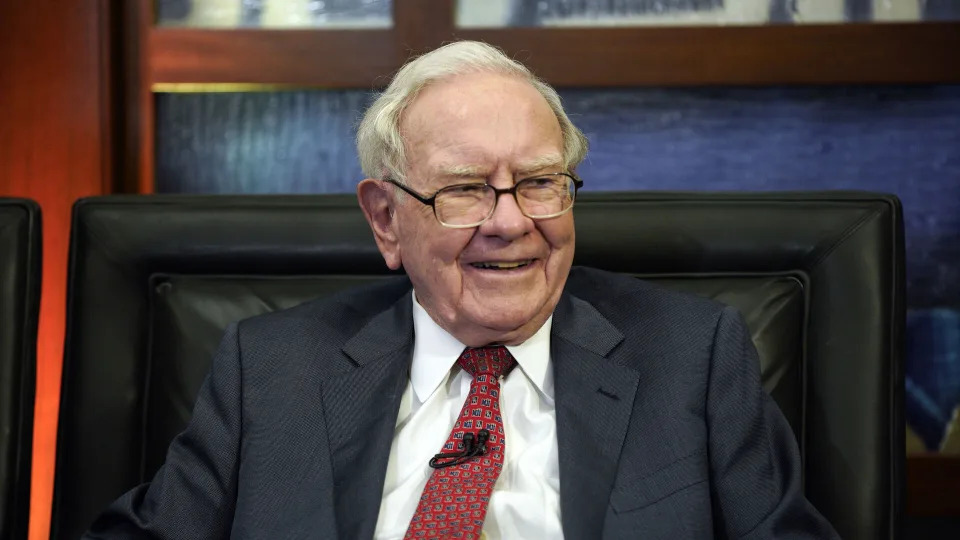Yahoo Finance Article on Warren Buffett
I am quoted in this article:

Few American investors are as widely revered as Warren Buffett, the 92-year-old business magnate, investor and philanthropist worth a cool 120 billion bucks.
Warren Buffett’s Financial Plan to Tackle America’s Debt: ‘I Can End the Deficit in 5 Minutes’
Learn: 3 Things You Must Do When Your Savings Reach $50,000
Many are curious as to how the Oracle of Omaha amassed his spectacular wealth. Though the vast majority of his fortune he earned as a grown adult, there’s reason to believe that some of what he learned (and what he values) about investing and work ethic stems from his first job as a newspaper delivery boy as a child.
Which money lessons did he likely learn from this little gig, and how do those inform his decisions today? What can you take away from them? With the help of finance experts, let’s explore.
He Invested Right Away
One of the most common misconceptions out there is that you don’t have enough money to invest. Buffett most certainly did not see it that way when he was young. And this has worked tremendously to his success.
Jaspreet Singh: 5 Assets To Buy So You Never Have To Work Again
At age 15, Buffett took $1,200 of his newspaper earnings and invested in a 40-acre farm.
Scott Lieberman, founder of Touchdown Money, said, “Somewhere in his earliest years, Warren Buffett looked at a bit of money and thought, ‘Hmm, I bet I could make this grow.’ That thought stayed with him, and now he’s one of the richest people in the world.”
Of course, Buffett’s investing journey had only just begun — but he has stayed close to his farmland-investing roots.
“Today, in addition to the billions in companies he’s invested in, he owns nearly a quarter of a million acres of farmland,” said Chris Rawley, CEO of Harvest Returns. “He believes buying and holding assets that produce cash flows is the secret to investing success.”
The lesson here is to start early — even if you think you don’t have enough to get far in investing. In time, you will.
He Was an Entrepreneur From the Start
Buffett was quite possibly the only kid in his neighborhood pocketing all of his hard-earned cash to invest in farmland. But being the odd one out didn’t stop him, because he had a vision.
“Have an entrepreneurial spirit, even if you are not self-employed,” said Michele Paiva, a licensed psychotherapist specializing in financial therapy at The Finance Therapist. “This means paying attention to the bigger picture and keeping an eye on the details of your habits. Short-term success or fly-by-night popularity has always been present in our culture, but long-term success has specific stability and dignity that can’t be denied. The entrepreneurial spirit helps to hone the skills that help someone foster growth and stability.”
He Practiced Patience
As noted, Buffett didn’t stop investing after buying farmland; he kept going and going and going. From the start, he has been committed to a long-term approach to investing — a lesson that everyone can learn from.
“He emphasizes the importance of patience and staying committed to quality investments over time,” said Young Pham, an investment analyst and wealth management professional with BizReport. “This approach reminds us that success in investing often comes from holding onto assets and allowing them to grow steadily over the years.”
He Showed He Was Reliable at a Young Age
Buffett was a diligent worker with a strong mind for finance at a young age. Getting up at the crack of dawn every morning to deliver newspapers couldn’t have been totally easy on him, but Buffett was clearly keen on showing that he was reliable and trustworthy. These are hard-to-teach traits that are valuable to learn.
“Buffett places a high value on integrity and reputation,” Pham said. “He has built a reputation for honesty and ethical behavior, which has earned him the trust of investors and business partners. This teaches us the importance of integrity and ethical conduct in all aspects of life and business.”
He Took His Time
New investors are often in a hurry to get rich; but, if you take the Buffett approach, you shouldn’t bank on overnight success. Think about it: Saving up $1,200 from delivering newspapers in order to buy land must have taken quite a while.
“Building wealth is a marathon and not a sprint,” said Robert R. Johnson, Ph.D., CFA and professor of finance at Heider College of Business at Creighton University. “The surest way to build true long-term wealth for retirement is to invest in the stock market. Mistakes begin early in life and the biggest financial mistake people make is taking too little risk, not too much risk. People need to begin compounding early and let that compounding work its patient magic over decades.”
He Didn’t Let Emotions Get in The Way
It’s difficult, if not impossible, to imagine what Buffett was thinking about when he was working his menial job as a kid and saving every penny. But he likely was staying deeply focused and not letting his emotions sway him. This is a form of discipline he has maintained over the years.
“Buffett has said that having the right temperament is more important than any other quality as a predictor of investment success,” said David Kass, clinical professor of finance at University of Maryland’s Robert H. Smith School of Business. “It is not necessary to have an IQ greater than 125. He has said jokingly that if you have an IQ that is greater than 125, you should sell the extra points.
“His bottom line recommendation is: The best investment anyone can make is in themselves. This will provide you with the knowledge and skills to most likely succeed as the economic environment changes.”




